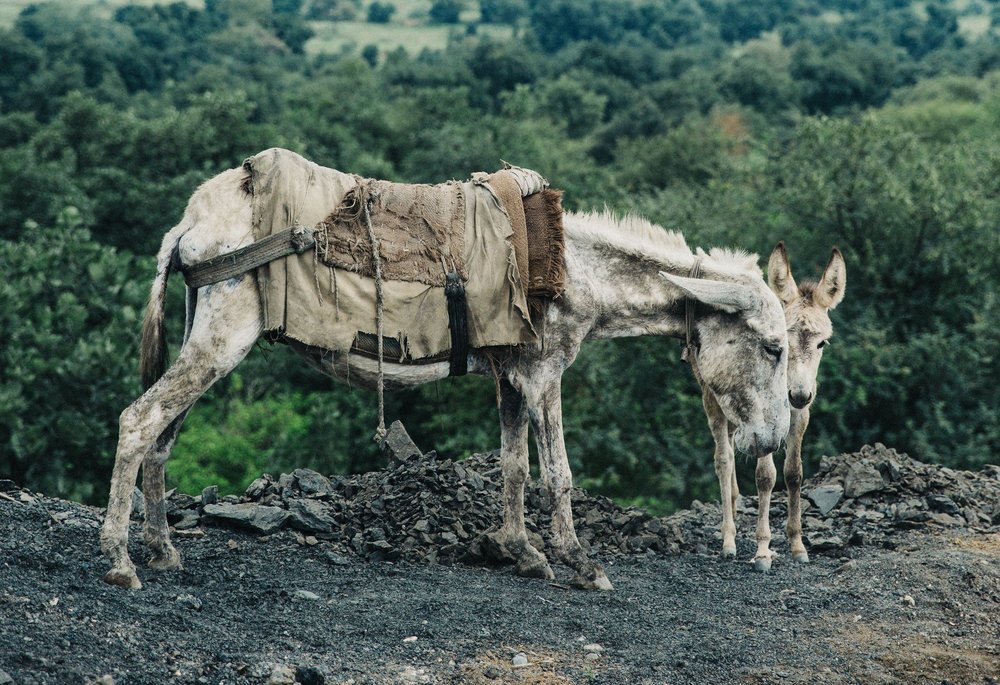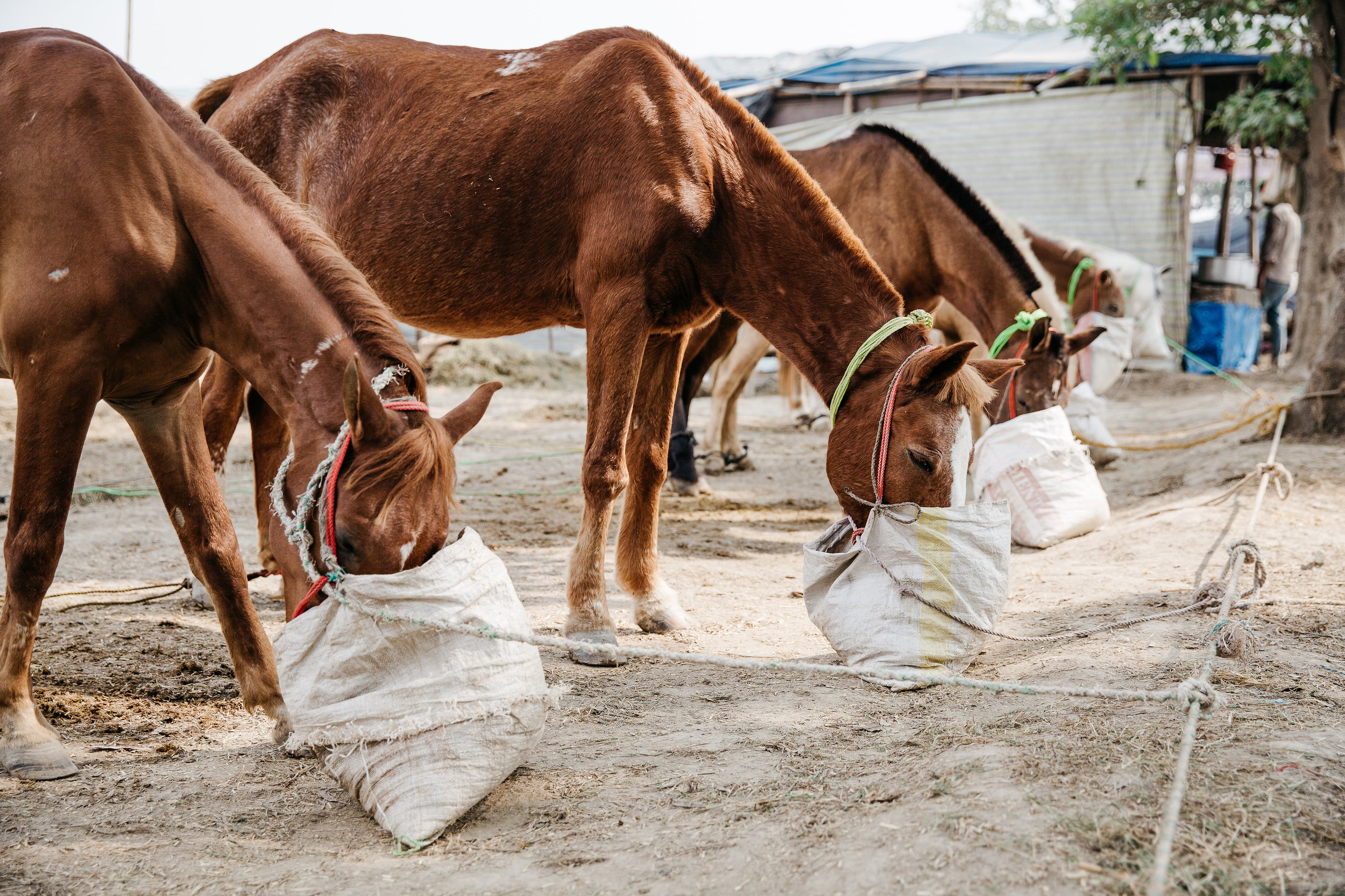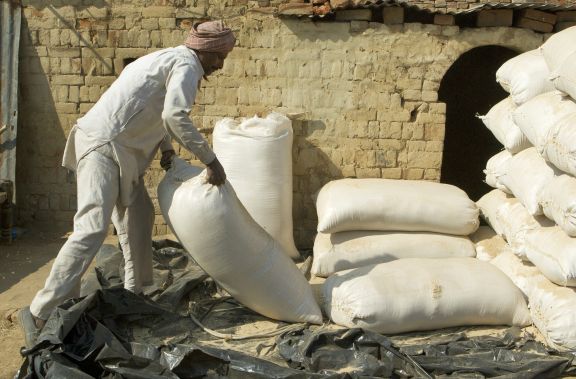Many working equines in the developing world are suffering in a chronic state of malnutrition. Not only does this cause tremendous suffering, but it can lead to death, which will cause economic devastation for the very poor owners who depend on them and are already living in poverty.
With Your Support, Brooke USA Can Help Them!
The Full Tummy Project is unique in that it supports all of our projects across the globe. Brooke USA’s Full Tummy Project is focusing attention on the myriad of ways in which the equine welfare programs that we fund improve the lives of animals (which raises the standard of living for people who depend on them) by improving the quantity and quality of their food.
From teaching owners how to grow nutritionally balanced and drought-tolerant crops for their animals, to enhancing feed with locally sourced supplements such as sugar cane, beet pulp, beer residue, maize, and other natural products which are easily and inexpensively accessed, it all makes a world of difference to hungry and suffering animals.
Hydroponics projects that help owners to grow green fodder in drought-prone areas, emergency feeding programs during famine, and other programs are tackling many on-going nutritional challenges immediately and for future generations.
Donate to Brooke USA’s Full Tummy Project, which will allow us to fund a number of programs in several countries this year and next, all of which include ways to ease the suffering of hungry animals and, by extension, the people who depend on them.
You’ll be helping animals and many of the world’s poorest way to make long-term welfare improvements and to ensure the prevention and alleviation of suffering.
Working equines in rural areas experience the same gastric energy use after activity as do equines who are used for sports competitions. However, unlike sport animals, working equines do not regain their energies as easily because of the inappropriate diet that they have available and the lack of nutritional supplements that are available to them for economic reasons. Therefore, we look for local nutritional alternatives that can meet the need and which are also low-cost and easy to find to assure sustainability.
Appropriate feeding is a vital component of animal welfare. Malnutrition of working equine animals in developing countries is common, due to lack of knowledge, cost constraints and unavailability of adequate uncontaminated feed. Improper feeding can result in higher susceptibility to diseases, potentially the animals' ability to work, as well as their life span.
Malnutrition is one of Brooke's primary challenges in many areas where Brooke USA is funding equine welfare programs. When an animal fails to receive the nutrients it needs from its diet, its suffering is increased, it loses body condition, becomes underweight, lacks energy, and is unable to perform its work effectively, and will likely die prematurely - any of which will also adversely affect the poor families who need a healthy working partner to help them earn a living.
Using Equine Welfare Associations to Improve Equine Nutrition
In many poor regions around the world, Brooke USA funds programs through Brooke that encourage and facilitate the formation of local equine welfare groups and associations among equine owners. The regional associations (usually 10-12 smaller community equine welfare groups) are tremendously helpful in improving the welfare of the animals in those communities and beyond, while helping the owners as well.
These welfare associations are encouraged to buy feed in bulk at a cost savings to each member. The group members are also encouraged to pool their limited resources to create emergency savings to help in the event of an animal becoming sick or injured.
Case Study:
Manpur village, Uttar Pradesh, India
Brooke India developed a software package in conjunction with nutritional scientists that aimed to: 1) assess the nutritional needs of working equids according to body weight and work type, and 2) identify how these could be met with locally available ingredients using local feeding practices.
This resulted in a new balanced feed formulation utilizing locally sourced ingredients.
A pilot project was then developed for some of the working equines in Manpur village in which owners fed the new feed formulation for four weeks. Owners described their animals as more alert, having a higher quality coat, overall improved health and having an increased ability to cope with their daily work. All owners adopted the new feed formulation as they found that the formulation was cheaper than what they had been feeding, but also more nutritious for their animals.
Seeing the positive impact of this feed formulation, the pilot project expanded to include 12 villages, and now more owners are using the feed. This group of satisfied owners will be a good source of exposure for this new feed formulation for many surrounding districts.
This owner is a member of an equine welfare group that has, with Brooke's encouragement, purchased nutritious feed in bulk to save money.
This mule in Manpur village works all day in a brick kiln -- one of the harshest working environments for animals and owners.
























